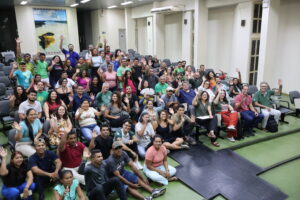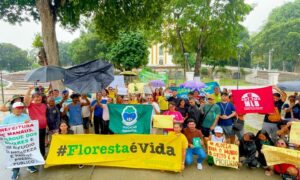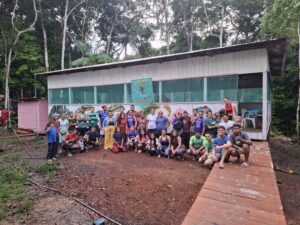Protagonism, good governance, and strengthening of grassroots organizations ensure income and sustainable development through the management of the Amazon giant in Mid-Juruá region
By Thais Alves
The management of arapaima (Arapaima gigas) for the year 2022 was a success for the communities of Mid-Juruá Territory, in southwest Amazonas. The activity reunited communities of Resex Mid-Juruá and RDS Uacari, Terra Indígena Deni do rio Xeruã, and from the Carauari Fishing Agreement. Managing the biggest scale fish in the Amazon isn’t an easy task. Extremely appreciated by gastronomy, the commerce moves the local economy and contributes to the conservation of the species. An initiative that amplifies the pillars of sustainability in its essence.
Predatory fishing of this Amazon giant reduced the species stock in rivers and lakes, causing the prohibition of fishing as a means for environmental protection against extinction threat. Sustainable management in the region is authorized by the Brazilian Institute for Environment and Renewable Natural Resources (IBAMA) beginning with a quota that equals 30% of last year’s counted individuals. The management premise is a set of guidelines to ensure the breeding of the species and conservation.
The necessary gears for successful management in this region permeate the model of local organization, articulation and territorial governance. Management itself is an example of the synergy between traditional knowledge and the sustainable use of natural resources, which strengthens the conservation of socio-biodiversity and goes through a series of stages until promising results are achieved.
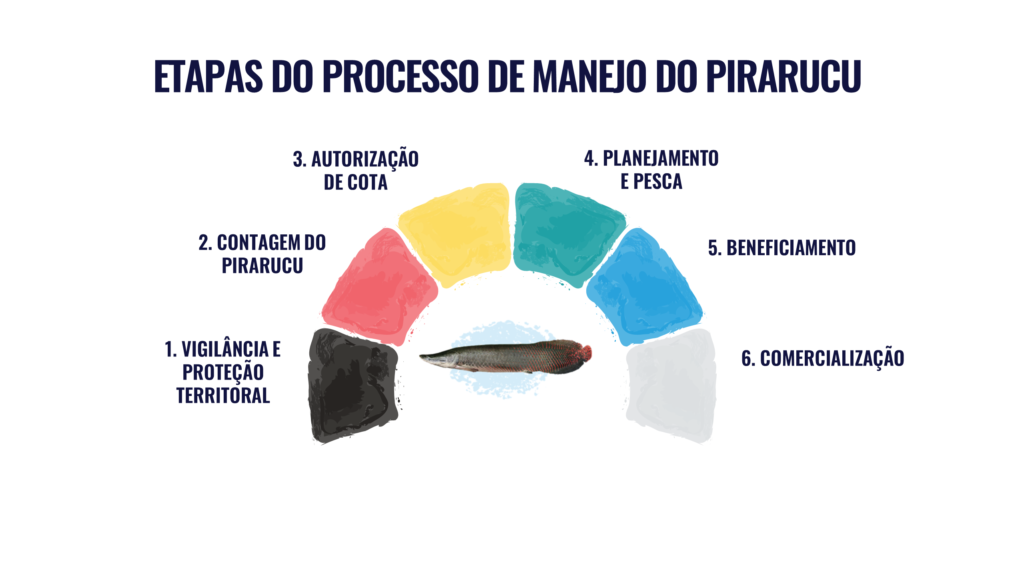
The management activity took place in September and October in the Mid-Juruá region, months that mark the end of the Amazonian summer. The activity demands advance preparation and involves the community. According to Henrique Cunha, certified manager, volunteer environmental agent and youth leader of the São Raimundo community, “around 18 communities are involved in handling both arapaima and other fish, some permanently and others temporarily”.
The São Raimundo Community, a pioneer in the sustainable management of arapaima in the region, demonstrates, with clear results, the organization’s potential and good governance. With 12 years of management of the Amazonian giant, communities, local organizations, and partners are mobilized by building canoes, cleaning lake paths, checking the condition of materials, training workshops for women in counting, organizing teams, logistics among other activities.
The 36 families of the São Raimundo community were involved in the activity, around 80 people directly in the management itself, between men and women, who fished in the lakes of Sacado, Marimari and Paranã of Manariã. Young people and especially women are increasingly present in the stages and decision-making spaces of this activity, which brought the community a financial return of around R$ 216 thousand, an income of around R$ 6 thousand per family, according to Henrique.
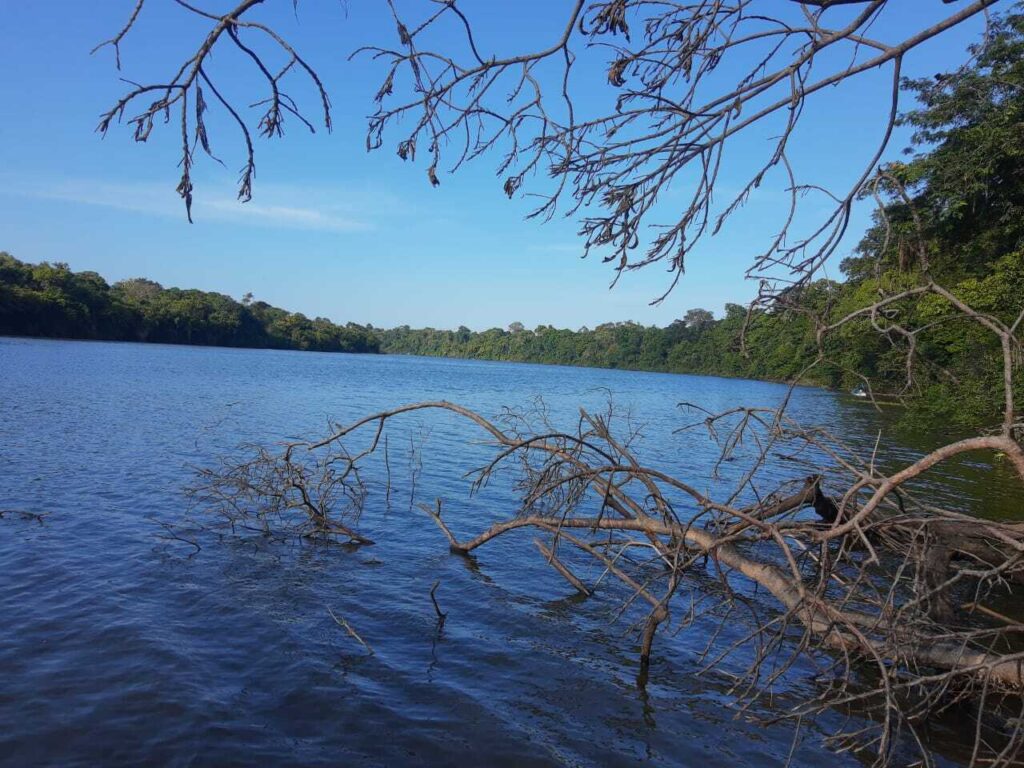
The income from the activity has led, in these 12 years, to great achievements for the territory and the community, as emphasized by Henrique, who reports the importance of the organization in this process, “it is an extra income for the community, it brought partners and we have an organization at the height of large markets”.
The population of the Mid-Juruá today smiles with the results of management that positively impact the local population, not only in terms of income generation, but in improving the quality of life and contributing to territorial protection, conservation of species, and maintenance of services ecosystems. “I have no doubt that the management carried out here protects biodiversity” concludes Henrique.
The management of arapaima is coordinated by the Associação de Produtores Rurais de Carauari (ASPROC) and several organizations collaborated for the implementation of management in the Mid-Juruá territory, such as Instituto Chico Mendes de Conservação da Biodiversidade (ICMBio), Associação dos Moradores Agroextrativistas da Comunidade São Raimundo (AMECSARA), Associação dos Moradores Agroextrativistas da Reserva de Desenvolvimento Sustentável de Uacari (AMARU), Associação de Mulheres Agroextrativistas do Médio Juruá (ASMAMJ), Associação do Povo Deni do Rio Xeruã (ASPODEX), Associação dos Trabalhadores Rurais de Juruá (ASTRUJ), Associação dos Moradores Agroextrativistas do Baixo Médio Juruá (AMAB), Secretaria do Estado do Meio Ambiente (SEMA/DEMUC), Operação Amazônia nativa (OPAN), Memorial Chico Mendes, Prefeitura Municipal de Carauari, Colônia de pescadores Z-25, Fundação Amazônia Sustentável (FAS) and Instituto Juruá.

